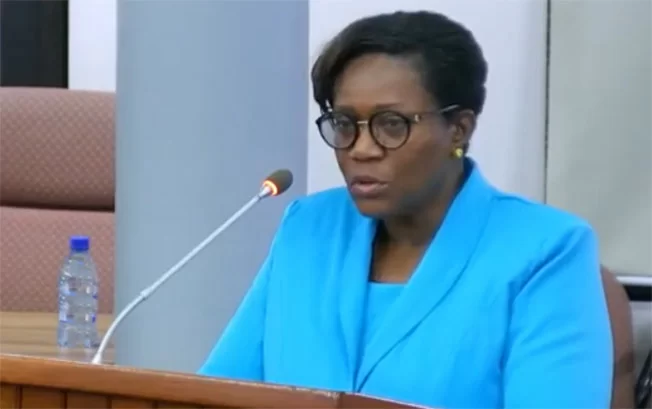In a significant legislative move, Suriname’s Minister of Finance and Planning, Adelien Wijnerman, has underscored the necessity of amending the State Debt Law. The revision, passed with a unanimous 36 votes in the National Assembly, aims to realign the law with the country’s current financial realities rather than facilitate additional borrowing. Minister Wijnerman emphasized that the amendment is a legal correction, enabling the government to manage existing debts more effectively. She clarified that the adjustment is not a carte blanche for increasing debt but a structured approach to address financial obligations.
As of August 2025, Suriname’s total state debt stands at approximately SRD 145 billion, equivalent to 98% of its GDP—well above the legal threshold of 60%. Without this amendment, any new loans or refinancing of existing debts would constitute a formal violation of the law. The temporary measure allows the debt ceiling to be exceeded until the end of 2027, providing the government with the necessary leeway to meet its commitments, particularly in social sectors, infrastructure, tourism, and other productive areas.
The revised law mandates the government to submit an annual state debt plan alongside the budget, detailing loans, repayments, restructurings, and associated risks. Minister Wijnerman assured that the National Assembly retains its oversight role, with annual approval of the debt plan ensuring parliamentary control. She also addressed Suriname’s heavy international obligations, including a debt to the International Monetary Fund (IMF) amounting to 390% of the country’s General Resource Account.
Regarding the restructuring of Oppenheimer bonds, Wijnerman noted that repayment obligations have been deferred to 2026–2028, coinciding with the expected influx of oil revenues. However, she warned that Suriname will still face annual payments of nearly USD 200 million in interest and principal before the oil income materializes. The restructuring also introduced a Value Recovery Instrument (VRI), now valued at USD 374 million, with total costs estimated at USD 1.9 billion.
Since assuming office in July 2025, the current administration has refrained from taking on new loans, focusing instead on stabilizing debt management and improving revenue and expenditure frameworks. Ongoing projects, such as a USD 25 million Inter-American Development Bank (IDB) loan for aviation, were approved earlier and are now being executed. The government is also developing a restructuring strategy for major loans to ensure medium-term debt sustainability.
Reforms within the tax and customs departments aim to enhance revenue collection, transparency, and capacity. Minister Wijnerman announced plans to consolidate the State Debt Law, incorporating modern insights and clear norms to provide a stable legal framework. She concluded with a call for discipline and realism, stressing that the law alone will not resolve Suriname’s financial challenges. The ultimate solution lies in boosting production, exports, and the income base to achieve financial sovereignty.
